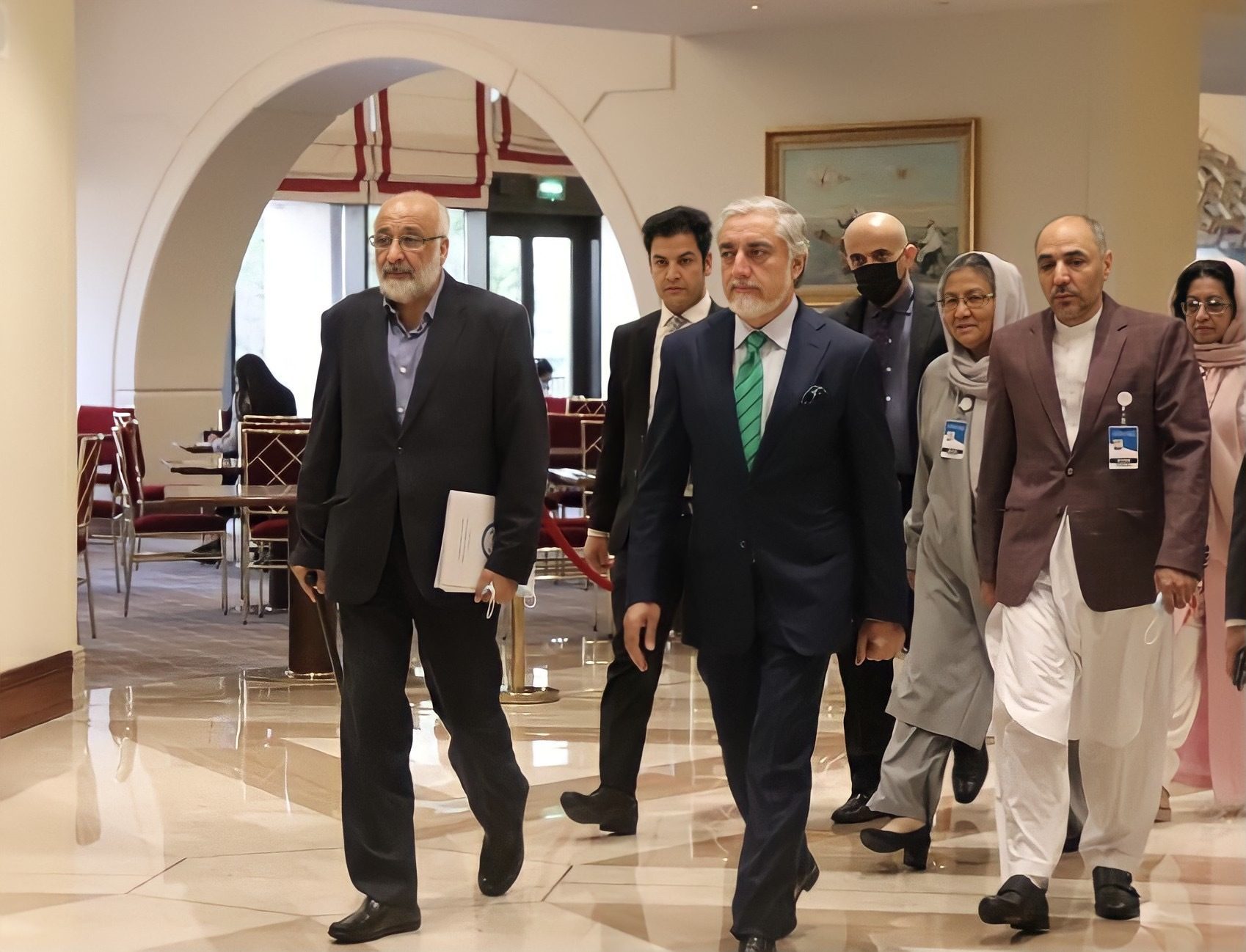The Taliban have captured nine Afghan provincial capitals in six days, forcing more families to flee their homes amid heightened security concerns.
A member of the Afghan government delegation at the Doha negotiations told Al Jazeera on Tuesday that having a mediator at the ongoing talks is necessary “to determine the seriousness of the parties”.
Qatar is currently hosting an international meeting on the Afghan peace process as well as an extended Troika meeting attended by diplomats from the US, China, Pakistan, the UK, Uzbekistan, the UN and the EU.
“The Taliban has no interest in negotiating, but rather in achieving its goals with violence. The international community should pressure the Taliban to show seriousness,” the Afghan government member told Al Jazeera.
However, a spokesman for the Taliban’s office told the Qatar-based broadcaster that the Afghan government “rejected the principle of a mediator” – not the insurgent group.
The Taliban member suggested the group is committed to the negotiations and does not want it to fall apart, asking the international community to “accurately assess the reality on the ground”.
When asked about the potential outcomes of the meetings, China’s Special Envoy to Afghanistan Yue Xiaoyong told Doha News that it was only the beginning and both sides have previously agreed that there can only be a political solution to the ongoing war.
US envoy in Qatar presses Taliban to halt violent military offensive
“I think both sides always said that a military option is no solution and they both agreed that they want peace and a political settlement,” he said shortly after the separate meeting with the Taliban ended.
“We hope all stakeholders seriously stick to respecting Afghanistan’s sovereignty and territorial integrity in handling their affairs to really realise the Afghan-owned and Afghan- led principle in this process,” he added.
When asked whether the Afghan side is prepared for the troop withdrawal, Yue said “you can ask them”, referring to the government.
The US’ “sudden decision” to withdraw forces without a peace plan “disappointed many countries”, Yue added, describing the past 20 years as a failure.
Talks in Doha
US Special Representative for Afghanistan Reconciliation Ambassador Zalmay Khalilzad and Abdullah Abdullah, Head of Afghanistan’s High Council for National Reconciliation are also among the attendees at the talks, which are set to take place until Thursday.
Prior to Khalilzad’s arrival, the US State Department said on Monday that the diplomat will “formulate a joint international response” to heightened escalations in the Asian country.
“He will press the Taliban to stop their military offensive and to negotiate a political settlement, which is the only path to stability and development in Afghanistan,” read the statement by the State Department.
The latest Troika meeting is the second to take place since April, in which negotiators called on the Taliban to abide by its commitment to reduce violence, including “preventing terrorist groups and individuals from using Afghan soil to threaten the security of any other country”.
Taliban offensive
The meetings come as the Taliban continues to capture more Afghan provinces and border crossings in the country amid a withdrawal of foreign troops.
Al Jazeera reported on Wednesday that the insurgent group captured Badakhshan province’s capital Faizabad, making it the ninth Afghan city to fall under the Taliban within six days.
Since Friday, the insurgent group captured Faizabad, Farah, Pul-e-Khumri, Sar-e-Pul, Sheberghan, Aybak, Kunduz, Taluqan and Zaranj.
A senior EU official said the Taliban now controls 65% of Afghanistan.
In a statement emailed to Reuters, UNICEF said at least 27 children have been killed and 136 injured in three Afghan provinces – Kandahar, Khost and Pakria – over the past three days alone.
“UNICEF is shocked by the rapid escalation of grave violations against children in Afghanistan,” said UNICEF country representative Hervé Ludovic De Lys.
Families in Afghanistan have been forced to flee their homes with the security situation in the country failing to improve. As of yet, there is no news about a ceasefire.
Since the beginning of the troop withdrawal in May, the United Nations Office for the Coordination of Humanitarian Affairs [OCHA] said there are at least 244,000 internally displaced people [IDPs] in Afghanistan—a 300% increase in comparison with the same period last year.
If no ceasefire is reached this year, the country is going to witness its highest civilian casualty since 2009.
Follow Doha News on Twitter, Instagram, Facebook and Youtube







